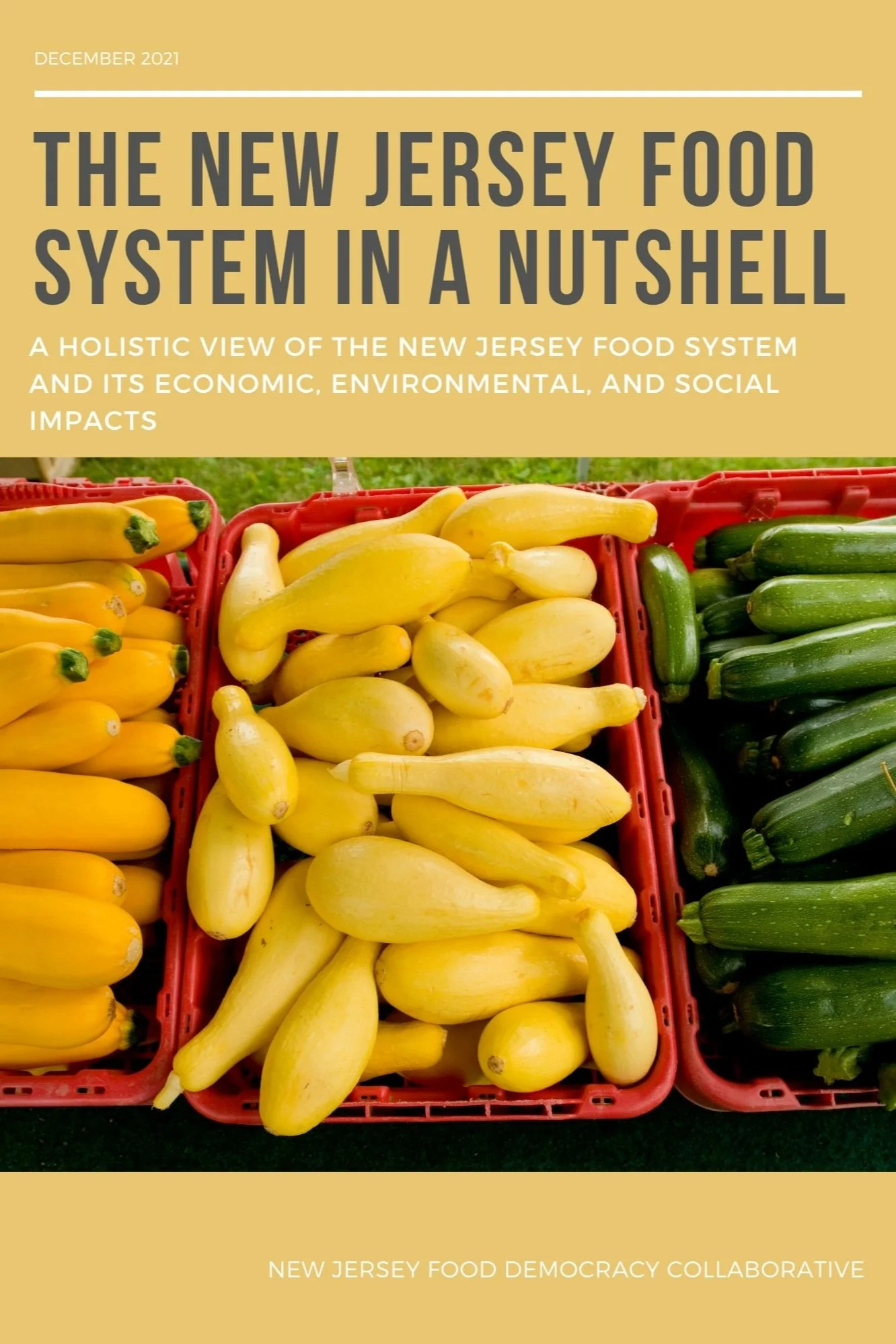WHAT IS FOOD APARTHEID?
WHY DO WE FOCUS ON EQUITY AND JUSTICE IN THE FOOD SYSTEM?
Food justice leaders utilize the term ‘food apartheid’ rather than ‘food desert’ to focus on the processes and structures that produce neighborhoods with limited access to fresh, affordable, and quality produce that urban gardens improve healthy food access and that garden-based educational interventions can lead to increased fruit and vegetable intake. Conventional approaches have focused on subsidizing the establishment of grocery stores in “food deserts.”
But recent research finds that financial incentives to open new supermarkets in underserved areas are not associated with changes in food purchasing or diet quality, while providing low-income households with financial incentives (often called nutrition incentives) to buy fruits and vegetables did improve dietary behaviors.
The NJFDC supports the establishment of a food system in New Jersey that is equitable, democratic, sustainable, and just as the approach that is most effective at achieving the goals of ensuring a food system that works for all and is most just in terms of addressing the historical and contemporary structures of disadvantage, marginalization, and exclusion. Below we present the NJ food system in a nutshell, identify the main challenges, and outline the NJFDC’s approach to building an effective response.


